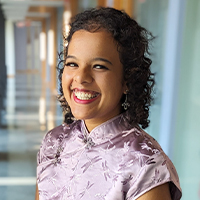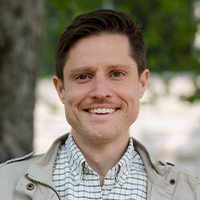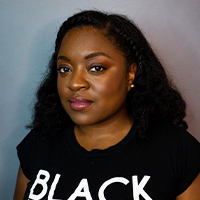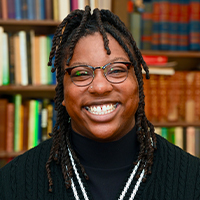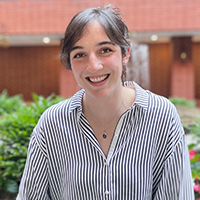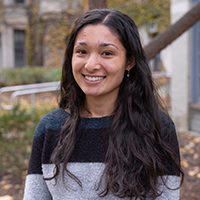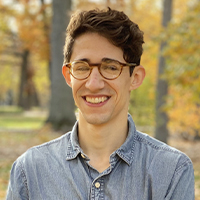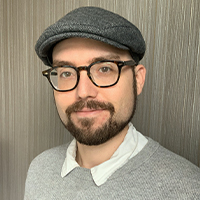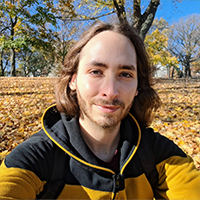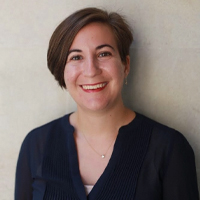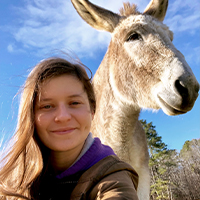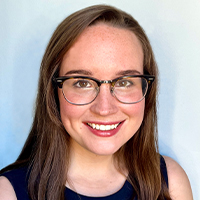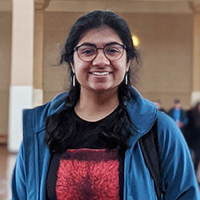Current Fellows
The Presidential Fellowship is funded by the President of the University and awarded by The Graduate School. This highly competitive award is the most prestigious fellowship awarded by Northwestern.
All recipients become members of the Northwestern Society of Fellows (which includes former members and distinguished faculty members). Presidential Fellows still completing their degrees are listed below. See past Fellows listed by induction year.
2024
Ananya Basu
Chemistry
Ananya Basu is a PhD candidate in the Department of Chemistry in the Weinberg College of Arts & Sciences.Ananya’s thesis work lies within chemical biology and targeted therapeutics, specifically in the field of targeted protein degradation. Protein degraders are an emerging class of therapies that hold great promise to expand the scope of treatable human diseases. Broadly, she draws from a suite of chemistry and biology techniques to develop a methodology to streamline the discovery process for protein degraders and extend the reach of degrader-based therapies. This work serves as a foundational step toward bringing new degraders to the clinic where they can improve patient outcomes.
Ananya received a BS in Chemistry from the University of Cincinnati, where she immersed herself in research spanning bioinorganic chemistry, organometallic chemistry, and neuro-oncology. She is a strong proponent of interdisciplinary science and is very fortunate to receive support as an NIH T32 trainee from the Chemistry of Life Processes Institute at Northwestern. She is also passionate about outreach work within and outside her department to help foster an interest in science among young people. Ananya is particularly excited by high-risk, high-reward science, and in her future career, aspires to lead by example and encourage other women to pursue careers in science and tackle high-impact research questions. When she is not in the middle of an experiment, she enjoys eating bagels, playing with the lab fish, pushing the limits of hallway agriculture, and exploring new places around Chicago by train.
Joshua Brallier
Religious Studies
Joshua Brallier is a PhD candidate in the Department of Religious Studies in the Weinberg College of Arts & Sciences.Joshua’s scholarship is driven by the question of how masculinity interfaces with religion to condone or condemn violence. His dissertation interrogates the historical life, literary output, and reception history of the famed nineteenth-century Buddhist master Do Khyentsé Yeshé Dorjé, the gun-wielding, deer-hunting, beer-drinking tantric yogi descended from a line of “bloodthirsty bandits” in eastern Tibet. Through a multimethod approach that combines close textual analysis of Do Khyentsé’s autobiographical writings, archival research on nineteenth-century Tibetan history, ethnographic fieldwork among Tibetans, and extensive interviews with contemporary specialists in Do Khyentsé’s lineage, Joshua points to the entanglements of Buddhist doctrine, Indigenous cosmology, and what he terms “bandit masculinity” in the developments of eastern Tibetan history.
Ultimately, Joshua’s dissertation argues that Do Khyentsé sat at the intersection of competing manly duties: the violence expected of him as an eastern Tibetan nomad, and the nonviolence expected of him as a powerful reincarnation of a famed Buddhist master. The way he balanced that tension illuminates a paucity in prevailing theorizations of masculinity that prioritize secularist interpretations of gender, foreclosing analytical consideration of the richly dense and thickly layered Indigenous cosmology and Buddhist metaphysics that shape Do Khyentsé’s gendered self-representation in his autobiographical writings.
Joshua’s work is driven by two normative commitments: (1) the feminist commitment to revealing that “history” is not gender neutral—even though histories rarely mark men as men, men are still bound by gender; and (2) the decolonial commitment to undermining the inertial legacy of Orientalist knowledge production in Buddhist Studies. One way Joshua works against that inertia is through textual ethnography—a method by which he reads Tibetan texts in Tibetan with their Indigenous experts. This helps guide Joshua’s reading and interpretation of Tibetan texts within the Indigenous parameters of their production and circulation.
Joshua has spent two years living with Tibetan exile communities in Nepal and India and is currently finishing a Fulbright-Nehru Fellowship conducting research at Namdroling monastery in southern India. He holds a BA in Religious Studies and English from Georgetown, an MDiv in Indo-Tibetan Buddhism from Naropa University, and an MA in Buddhist Studies from CU Boulder.
Charlene Carruthers
Black Studies
Charlene Carruthers is a PhD candidate in the Department of Black Studies in the Weinberg College of Arts & Sciences.Charlene A. Carruthers is a writer, filmmaker, community organizer, and Black Studies PhD candidate at Northwestern University. A practitioner of telling more complete stories, her work interrogates Black governance, Black and Indigenous relationality, and Black feminist abolitionist geographies. She is a 2020 Marguerite Casey Presidential Freedom Scholar and Mellon Interdisciplinary Cluster Fellow in Gender and Sexuality Studies. Her work spans more than 15 years of community organizing across racial, gender, and economic justice movements. Charlene wrote and directed The Funnel, a short film, which received the Queer Black Voices Award at PRISM, the 35th Annual Austin Gay and Lesbian International Film Festival (aGLIFF).
As the founding national director of Black Youth Project 100 (BYP100), she worked alongside young Black activists to build a national member-led organization dedicated to creating justice and freedom for all Black people. Her work has been covered in several publications including the New York Times, the Washington Post, Chicago Reader, The Nation, Ebony, and Essence Magazines. She has appeared on CNN, Democracy Now!, BBC and MSNBC. The Chicago native has also written for theRoot.com, CRISIS Magazine, Teen Vogue, Truthout, Colorlines, and the Boston Review. She is recognized as one of the top 10 most influential African Americans by The Root 100, one of Ebony Magazine's "Woke 100," an Emerging Power Player in Chicago Magazine, and is the 2017 recipient of the YWCA's Dr. Dorothy I. Height Award.
A committed educator, Charlene is also a highly sought-after speaker at various institutions including Wellesley College, Shaw University, Princeton University, Northwestern University, and her alma mater Illinois Wesleyan University. Charlene earned a Master of Social Work from the Brown School at Washington University in St. Louis, MO. She is the author of the bestselling book, Unapologetic: A Black, Queer, and Feminist Mandate for Radical Movements.
Monique Newton
Political Science
Monique Newton is a PhD candidate in the Department of Political Science in the Weinberg College of Arts & Sciences.A mixed-method scholar of American politics and Black political behavior, Monique employs ethnographic, interview, and experimental methods to examine Black political behavior in American cities. Overall, her research explores how local Black communities respond to state violence. Monique's research also delves into the local reparation movement in the United States.
Monique’s dissertation project, “Worst Behavior: How Traumatic Events Impact Local Political Participation of Black Neighborhoods in the United States,” examines how trauma is translated into a potential resource for collective mobilization. In this project, Monique incorporates collective memory-driven models and conceptualizations of trauma into the study of Black political behavior in neighborhoods across the United States. Through her dissertation research, she examines how collective memory informs contemporary collective action in the Black Lives Matter Movement.
Monique was a graduate assistant for the Center for Civic Engagement in 2021. Monique served as a Diversity Fellow for the Office of Diversity and Inclusion in The Graduate School for two years. During the summer of 2022, Monique served as a Summer Research Opportunity Program (SROP) group leader. In 2023, Monique was inducted into the Edward Alexander Bouchet Graduate Honor Society, which aims to recognize outstanding scholarly achievement and promote diversity and excellence in doctoral education and the professoriate.
As an educator, Monique has taken full advantage of the opportunities to teach non-traditional students that Northwestern offers graduate students. Monique recently taught an in-person American Government and Politics course to incarcerated men at Stateville Correction Center in Illinois through the Northwestern Prison Education Program (NPEP). Last spring, she taught a course on social justice in Chicago Field Studies.
Before attending Northwestern, Monique was a Pittsburgh Coro Fellow in Public Affairs. Monique holds a BA in Politics and Law & Society from Oberlin College. Her work has appeared in the Russell Sage Journal and the Washington Post.
Margaret O'Connell
Chemical Engineering
Margaret O'Connell is a PhD candidate in the Department of Chemical and Biological Engineering in the McCormick School of Engineering.Margaret "Maggie" O’Connell works in the Systems Analysis Research Group under Professor Jennifer Dunn. She uses interdisciplinary techniques to approach sustainability from technical, political, and cultural perspectives.
The question of “what is sustainable?” is one engineers often try to answer through different assessment processes. For instance, Maggie employs life cycle and techno-economic analyses to understand cost, energy, and land use tradeoffs associated with emerging water treatment technologies. But the question of “what is sustainable?” goes far beyond cost and emissions calculations. What is sustainable depends greatly on values, worldviews, and culture. It depends on who defines sustainability and who chooses policies that promote some, but not other, technology options. No technology comes without tradeoffs, and her work examines over a dozen sustainability assessments used for decision-making purposes at state and federal levels, exploring how these assessments either affirm or violate Indigenous sovereignty via their inclusion or exclusion of participatory processes. These insights are fundamental to her ongoing collaboration with Ojibwe Tribes which aims to transform these assessments by shifting sustainability from a matter of emissions to a matter of relationships – relationships within ecosystems and relationships between peoples and cultures.
Maggie herself is non-native and continues to learn from ongoing relationship-building, working with collaborators to root sustainability measures in both Indigenous and Western knowledge systems. Her research demonstrates that sustainability can be achieved only when solutions are developed in a culturally relevant, sovereignty-affirming manner.
Maggie received a BS in chemical engineering from Princeton University, and while at Northwestern has received the Ryan Fellowship and Northwestern Institute on Complex Systems (NICO) Intersection Science Fellowship.
Jillian Rastinejad
Astronomy
Jillian Rastinejad is a PhD candidate in the Department of Physics and Astronomy in the Weinberg College of Arts & Sciences.Jillian Rastinejad is an astronomy PhD candidate in the Department of Physics and Astronomy in the Weinberg College of Arts & Sciences and a member of the Center for Interdisciplinary Research and Exploration in Astrophysics (CIERA). She is advised by Wen-fai Fong.
Jillian leverages world-class telescopes to study astronomical explosions that create heavy elements, including iodine, silver, and gold. Despite their prevalence in our day-to-day lives, these heavy elements did not exist at the Universe’s birth, and their astronomical birthplaces are still not well understood. Jillian’s research has challenged long-standing paradigms of where the heavy elements are born and found that the signatures of heavy elements are more diverse than previously expected. She leads observing programs on premiere telescopes, including the Hubble Space Telescope and the twin Gemini Observatories in Chile and Hawai’i, using them to rapidly respond to alerts from NASA satellites pointing to the location of a new explosion. Jillian is also an active member of the Searches After Gravitational-waves Using ARizona Observatories (SAGUARO) collaboration, which looks for the counterpart explosions to gravitational wave events, minuscule ripples in space-time that are only recently being discovered by detectors on Earth.
Jillian obtained a BA in Physics and Human Rights from the University of Connecticut and was previously a Northwestern Data Science Fellow. She is passionate about astronomy outreach, having created and led a Data Science for the Public Good conference, contributed to astronomy high school mentoring programs, and worked with journalists to bring astronomy news to the public.
David Silverman
Psychology
David Silverman is a PhD candidate in the Department of Psychology in the Weinberg College of Arts & Sciences.David is a social and educational psychologist whose work primarily focuses on identifying opportunities to create stronger and more just school systems. His research is inspired by his experiences growing up around the Middle East and Central Europe which exposed him to the power of schools, educators, and other key social forces to shape students’ lives, particularly among students from lower-income families.
Along with his mentor, Dr. Mesmin Destin, David has explored the specific psychological pathways through which these social forces contribute to, and can help dismantle, persistent educational inequities. For example, his dissertation work employs a wide range of methodologies to demonstrate the importance of preparing educators to meaningfully engage with students and the valuable skills, knowledge, and resources that they often gain as a direct factor of their otherwise marginalized identities. Although school systems often dismiss or devalue these strengths, David has consistently shown that supporting educators to recognize and reward them in the classroom has a variety of important benefits for both educators and their students from lower-income families. This ranges from leading students to feel more comfortable and confident in the classroom, to decreasing their feelings of anxiety about the future, to even increasing their grade-point averages and likelihood of graduating from university. David is currently focused on extending these insights beyond the classroom to other key elements of society that contribute to (in)equity, including the workplace, educational policy, and social scientific research more broadly.
David’s research is supported by the National Science Foundation’s Graduate Research Fellowship and generous support from a variety of educational organizations. Before coming to Northwestern, David received his BA in Public Health and Psychology at the University of Virginia and served as a data analyst for two-year colleges across the United States.
2023
Paul Feller-Simmons
Music
Paul Feller-Simmons is a music PhD candidate in the Department of Music in the Bienen School of Music. He is advised by Linda Austern.
Primarily an early modernist, Paul's work engages with interdisciplinary approaches to Jewish-Christian musical exchanges, music in the Spanish colonies, and musical othering. His dissertation investigates how musical experiences mobilized culture between Jewish and Christian communities and social and territorial borders in seventeenth- and eighteenth-century Northwestern Europe. Bringing together tools from varying fields—music studies, early modern and medieval studies, Jewish studies, social theory, historical anthropology, and philosophy—Paul considers the spaces for cross-cultural exchanges that the performance, composition, economics, and consumption of music opened in the Dutch Republic and the German-speaking lands. His research demonstrates the dynamism and interconnectedness of historical Jewish cultures while shedding light on the musical mechanisms through which their communities would uphold their identities.
Paul's dissertation underscores the agency and joy that music afforded Jewish musicians and audiences in their everyday lives. Yet, he also shows that a fluid musical circulation between Jews and Christians was faced with internal and external tensions with both Jewish and Christian authorities. Paul’s work has been supported by awards and grants from the Society for Seventeenth-Century Music and the American Musicological Society. His work on colonial villancicos in Chile was recognized with an honorable mention for the 2023 Otto Mayer-Serra Award. In 2022, he obtained the American Musicological Society Noah Greenberg Award with Cesar Favila for their contribution to the performance of music from nunneries in New Spain.
Paul is also a lecturer at the University of Illinois at Chicago. He holds a bachelor of arts with a concentration in musicology from the Pontificia Universidad Católica de Chile and a master's degree in musicology from Northwestern University. He is also a member of Northwestern's Medieval and Jewish Studies clusters.
Julian Gamboa González
Electrical Engineering
Julian Gamboa González is a PhD candidate in the Department of Electrical and Computer Engineering in the McCormick School of Engineering.
Julian is a member of the Lab for Atomic and Photonic Technologies (LAPT) under Professor Selim Shahriar. His primary research focuses on the development of holographic technologies for data acquisition and signal processing. Light is perhaps one of the most intriguing phenomena in the universe, being strong enough to hold up the most massive stars, yet gentle enough to stop at the touch of a flower. Ever present in our lives, light is not limited to our cameras, our screens, or even our favorite star; optical engineering has given us a plethora of technologies from medical imagers to quantum computers. However, these technologies are often too costly, complex, and large when compared to their electronic counterparts. Julian’s research aims to address these issues by developing holographic technologies—both digital and analog. He is currently working on a high-speed optoelectronic image correlation architecture that can perform target recognition faster than any computer.
Beyond his research, Julian is proactive in the sharing of knowledge and personal experiences. He believes that every life is a unique world, and through empathy, curiosity, and perseverance we can develop the tools necessary to overcome some of humanity’s most complex issues and boldly go where no one has gone before.
Before arriving at Northwestern, Julian obtained his B.Sc. in Telecommunications and Electronic Systems Engineering at ITESM CCM, in Mexico City, Mexico, where he graduated with honors. His dissertation research on high-speed OFDM fiber-optic lines was performed as a collaboration between ITESM and IINGEN, UNAM.
Paulina Jones-Torregrosa
English
Paulina Jones-Torregrosa is an English PhD candidate in the Department of English in the Weinberg College of Arts & Sciences. She is advised by John Alba Cutler.
Paulina Jones-Torregrosa works at the intersections of literary, ethnic, and feminist studies. Her dissertation, “We’re All on the Line:” Women of Color Print Solidarities, 1970-1991, analyzes U.S. women of color feminists’ rigorous critique of transnational inequalities. She conjoins works that express a sense of intimacy with women abroad by the Third World Women’s Alliance, Janice Mirikitani, June Jordan, Audre Lorde, and Cherríe Moraga. These writers protest U.S. incursions in Latin America and the Caribbean, tracing the lived legacies of racism, sexism, and imperialism. Put together, these works unsettle the boundaries of transnational feminisms and hemispheric literary studies. More importantly, Paulina’s research contends that women of color feminist literatures are essential works to understand and dismantle global networks of domination.
Paulina’s pedagogy empowers students to apply anti-racist, feminist principles to contemporary contexts. She served as a teaching assistant and a Mellon Cluster Fellow in the Gender and Sexuality Studies Program. Paulina also helped launch and co-coordinate the Anti-Racist Pedagogy Graduate Reading Group within the English Department. Much of her philosophy on equitable, accessible, and compassionate instruction derives from her years teaching seventh-grade English in East Boston, Massachusetts.
Paulina’s research is supported by a WW Dissertation Fellowship in Women’s Studies. Her writing can be found in Feminist Studies, The Chicago Review, Barrelhouse Reviews, and The Adroit Journal. Paulina earned a BA in English and Feminist, Gender, and Sexuality Studies from Wesleyan University.
Heather Menefee
History
Heather Menefee is a history PhD candidate in the Department of History in the Weinberg College of Arts & Sciences. She is advised by Kate Masur.
Heather Menefee is an interdisciplinary scholar and teacher of U.S. and Native American histories. She is a PhD candidate in the History Department, and she finds her intellectual and community home in the Center for Native American and Indigenous Research (CNAIR). As an undergraduate student, Heather helped to create the Native American and Indigenous Student Alliance and to combat the university’s erasure and exclusion of Indigenous nations, people, and intellectual traditions. She earned a BA (summa cum laude) from Northwestern with an ad hoc major in Native American Studies in 2015.
As a non-Native scholar, Heather remains committed to supporting Indigenous sovereignty and to dismantling and transforming settler colonial institutions. She is a student of the Dakota language, an intern with Dakhóta Iápi Okhódakičhiye, and the teaching assistant for the Dakota Language program at the University of Minnesota-Twin Cities. Her dissertation, That We May Live Upon the Earth Again: Kinship in Dakhóta Makhóčhe, 1829-1939, draws from Dakota- and English-language sources to show how seven generations of Dakota people made new relatives, survived genocide, repurposed settler ideologies and institutions, and reclaimed their homelands. Heather’s dissertation draws on documents by over 200 Dakota authors that span more than a century. She also uses records from U.S. agencies to uncover systematic economic dispossession that has been alleged but never proven. Through researching historical processes of settler colonial dispossession, Heather supports Indigenous nations working to reclaim their land in the present.
Heather’s research has received support from CNAIR, where she will be a 2023–24 Digital Humanities Graduate Fellow, the Alice Kaplan Institute for the Humanities, the South Dakota State Historical Society Press, the Chabraja Center for Historical Studies, the Mellon Graduate Cluster in Native American and Indigenous Studies, the Clements Center at SMU, and the Royster Society of Fellows at UNC-Chapel Hill.
Ashley Murphy
Clinical Psychology
Ashley Murphy is a clinical psychology PhD candidate in the Department of Psychiatry and Behavioral Sciences in the Feinberg School of Medicine. She is advised by Heather Risser.
Ashley is a community-engaged researcher whose work focuses on the intersection of child development, public policy, public health, and psychology. In her research, she partners with the disability community to improve the delivery of publicly funded services, particularly focusing on increasing family engagement in development-focused therapies delivered through special education, early intervention, and child welfare systems.
As a former special education teacher, Ashley saw firsthand that many children with disabilities only receive critical therapy services (e.g., physical, occupational, speech, and behavioral therapies) through school. However, limited resources prevented many children from getting the amount of therapy they needed. Based on the family-centered-care model used in other pediatric settings, she hypothesized that increasing parent involvement in school-based therapies would maximize the impact of schools’ limited therapy resources and increase children’s abilities to master important developmental skills in their day-to-day lives.
In partnership with families and cross-disciplinary providers, she developed the Parent-Therapist Partnership Survey for parents to communicate what needs they consider important to be partners in their child’s school-based therapies and if these needs are being met by providers. Her studies consistently find high rates of unmet parent needs, which are exacerbated for families of color and families with limited resources. Consequently, Ashley has broadened her research to partner with individuals with disabilities, their families, providers, and policymakers to develop community-based interventions to improve family engagement in and delivery of publicly funded therapies.
Ashley received a BA from the University of Notre Dame in English and Neuroscience & Behavior. She also holds an MS in Special Education from Dominican University and an MA in Clinical Psychology from Northwestern.
Vaidehi Srinivas
Computer Science
Vaidehi Srinivas is a computer science PhD candidate in the Department of Computer Science in the McCormick School of Engineering. She is advised by Aravindan Vijayaraghavan.
Vaidehi’s research focuses in on the theoretical side of computer science, specifically algorithms for machine learning. In practice, many machine learning methods are observed to work extraordinarily well, most of the time. However, we have very little theoretical understanding of why. Vaidehi’s goal is to establish mathematical guarantees that characterize the settings in which machine learning methods work. The main technical challenge she addresses is understanding when it is possible to optimize non-convex functions. She has developed new techniques to tackle this problem on the Burer-Monteiro method. These techniques have the promise to be widely applicable to a broad set of machine learning methods. Vaidehi has been extending these ideas and developing new theories to understand other standard machine learning methods and fill the gap between theory and practice.
In addition to research, Vaidehi is interested in building strong academic support systems for students of all ages by working with elementary and middle school students through Books and Breakfast and Math Circles of Chicago and by serving on the Computer Science PhD Advisory Council.
2022
Thomas A. Berrueta
Mechanical Engineering
Thomas A. Berrueta is a PhD candidate in the Department of Mechanical Engineering in the McCormick School of Engineering and is a member of the Center for Robotics and Biosystems advised by Todd Murphey.
An interdisciplinary scientist and engineer, Thomas's research focuses on understanding and controlling complex systems. From termite construction to the molecular machinery of cells, emergent behaviors in nature stand as proof that collections of simple elements can become greater than the sum of their parts. Biological systems of this kind are often noisy, chaotic, and unpredictable — yet no human-made machine rivals their capabilities.
Bringing together insights from artificial intelligence, statistical physics, and chemical engineering, Thomas seeks to make engineered systems more life-like by embracing randomness and disorder. In his dissertation, tentatively titled Robot Thermodynamics, Thomas presents a novel framework from which imprecise and messy artificial elements can produce reliable and controllable emergent outcomes. Self-healing cement for buildings, minimally-invasive microrobotic insulin delivery, and aerosolizable sensor networks are among many exciting applications made possible by this approach. Thomas imagines a future where embodied intelligent systems are everywhere in all shapes and sizes, and his doctoral work lays out the foundations for such a vision.
Bright Gyamfi
History
Bright Gyamfi is a PhD candidate in the Department of History in the Weinberg College of Arts & Sciences.Bright’s work sits at the intersection of West African and African Diaspora intellectual history, nationalism, Pan-Africanism, Black internationalism, and economic development. His research examines Ghanaian intellectuals who worked to transform and radicalize the study of Africa in academic and intellectual centers around the Atlantic. The project weaves together local and transnational histories around the Atlantic based on more than five years of archival research and oral interviews in Ghana, Senegal, Grenada, Trinidad and Tobago, the United Kingdom, and the United States. It contends that networks of intellectuals can continue to produce and advance radical scholarship even if their country of origin opposes it.
Beginning with the military overthrow of President Kwame Nkrumah in 1966, Bright examines how Ghana became increasingly hostile to intellectuals close to Nkrumah. Consequently, many Nkrumah-inspired scholars found intellectual homes abroad, including at the UN-funded development institute IDEP (Institut African de Développement Economique et de Planification) in Dakar and in American universities and colleges. These academics helped shape the development of Black Studies in the United States. Their efforts to stimulate a global movement of Black consciousness extended into the Caribbean as well, reaching places like Grenada and Suriname. In exile, these Nkrumah-influenced scholars maintained firm ties with their counterparts who remained in Ghana. Their efforts helped reimagine Africa and its diaspora as a terrain of unified political action and intellectual research. Their endeavors offer insight into the circulation and influence of Black internationalist thought and organizing within, and beyond, Africa.
Bright holds a BA in History and Political Science from the University of Notre Dame as well as an MSc in African Studies from the University of Oxford. His work has appeared in the Journal of African American History, African Studies Review, Africa is a Country, and The Conversation.
Jacob Kelter
Joint PhD Program in Computer Science and Learning Sciences
Jacob Kelter is a PhD candidate in the joint Computer Science and Learning Sciences Program through the School of Education and Social Policy and the McCormick School of Engineering and Applied Science. The broad goal of Jacob's research is to create and study computational tools for making sense of complexity in the world. Novices often have difficulty understanding complex systems because they assume natural and social patterns are always due to centralized and deterministic causes rather than emerging from decentralized interactions potentially involving randomness. For example, many people assume traffic jams result only from a centralized cause, like a crash, but they can also emerge endogenously from random variations in the speeds of cars. Researchers use computational “agent-based” models to study complex systems in which large scale patterns emerge from the interactions of thousands of agents. These tools can also be used by students to hone their intuitions and make sense of how global patterns can emerge from the interactions of a system’s parts, whether those parts are atoms, animals, people, or organizations.
Jacob's dissertation research focuses on using computational modeling in science education, currently in the context of materials science and engineering. The research includes (1) redesigning the introductory materials science and engineering course to make central use of computational agent-based modeling and (2) studying the effects of the redesign on student learning and understanding of complex phenomena. Apart from his dissertation work, Jacob engages in original research on complex economic and political systems. He has published work modeling an alternative voting system (quadratic voting) and currently collaborates on agent-based models of economic systems and their interactions with the environment.
Rachel S. Russell
Interdisciplinary PhD in Theatre and Drama
Rachel S. Russell is a PhD Candidate in the Interdisciplinary PhD in Theatre and Drama (IPTD) in the School of Communication.
An interdisciplinary dance practitioner and dance scholar, Rachel’s work brings together Dance Studies, Performance Studies, Black Studies, and Gender and Sexuality Studies. Her dissertation focuses on the dreams and actions of Black women who practice African/African Diaspora dance and modern dance. She examines how the mothers of African American dance, and their descendants in the present, rehearse to survive the dissonance they experience between their lived reality and the world they know is possible and actively try to create. Through the creation of, and application of, a theoretical framework and conceptual space named The Waiting Room, Rachel’s research understands, documents, and conceptualizes the present-day history of dancer, choreographers, and their predecessors across time, space, and place.
Rachel has worked as an arts administrator and teaching artist. She is a member of Àṣẹ Dance Theatre Collective (Brooklyn, NY) and was a company member of Sydnie L. Mosely Dances (2014-2017). Rachel also served as a member of the Dance/NYC Junior Committee (2016-2017). Rachel is the recipient of a Mellon Interdisciplinary Cluster Fellowship in Gender and Sexuality Studies and has earned Graduate Certificates Gender and Sexuality Studies and African American and Diaspora Studies at Northwestern University. Rachel earned a BFA in Dance Pedagogy from Columbia College Chicago and a MA in Performance Studies from New York University.
Samantha Schroth
Medical Scientist Training Program (MSTP) and Driskill Graduate Program in Life Science
Samantha Schroth is a MD/PhD candidate in the Medical Scientist Training Program in the Feinberg School of Medicine.
As an MD/PhD trainee, Samantha’s work is united by the common thread of improving the quality of life and care patients receive within the health care system. Her dissertation investigates the role of an innate immune cell population, conventional dendritic cell 1 (cDC1), in establishing and maintaining tolerance to a transplanted heart. While current standard of care for patients receiving new organs necessitates the use of multiple immunosuppressant medications with a myriad of often severe side effects, Samantha’s work seeks to identify intrinsic mechanisms by which cDC1 cells promote acceptance of a foreign organ. This includes unraveling the complex signaling network between cDC1s and other immune cells in addition to the influence of metabolic programming on cDC1 function. Her studies aim to provide novel therapeutic alternatives to enhance transplant survival while minimizing side-effects and improving quality of life for patients.
Additionally, Samantha proudly identifies as a Disabled woman and manual wheelchair user after incurring a spinal cord injury resulting in paraplegia in 2013. She serves as a leader and advocate in this space, having served as Ms. Wheelchair WI 2014 and Ms. Wheelchair America 2015. At Northwestern, she continues to challenge disability related bias and works to mitigate health care disparities faced by persons with disabilities while also promoting inclusion of learners with disabilities in graduate training. She serves on the executive board of the Disability Advocacy Coalition in Medicine, is on the board of directors of the adaptive sports organization Dare2Tri, and has published in the Chicago Tribune, Journal of Academic Medicine, and Journal of Medical Education and Curricular Development on these topics.
